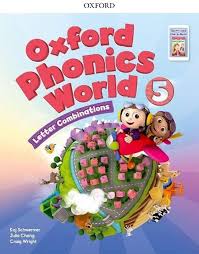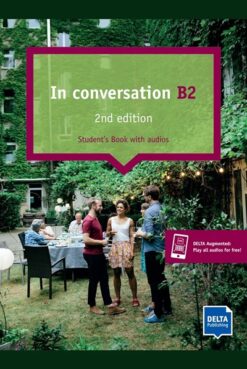Key Features of Oxford Phonics World 5:
Advanced Phonics Patterns: Level 5 introduces even more complex phonics rules, such as:
Vowel + consonant combinations (e.g., “ea” in “head” vs. “ea” in “team”)
Complex syllable structures (e.g., “consonant + vowel + consonant” patterns in words like “rabbit”, “circle”)
Irregular vowel sounds (e.g., “ough”, “ie”, “ei”, “ea”)
Advanced digraphs and blends (e.g., “ch”, “sh”, “th”, “ph”, “wh”, “ck”)
Word stress and intonation patterns to help with pronunciation.
Multi-Syllabic Words: Students continue to build on their ability to break down longer, more complex words into syllables and sounds, improving their reading fluency.
Examples: “beautiful”, “celebrate”, “comfortable”, “understand”
Silent Letters: Students review silent letters and learn more about them, such as those found in words like “subtle”, “receipt”, and “psalm”.
They also study silent letters in context, which strengthens spelling and reading skills.
Root Words, Prefixes, and Suffixes: This level helps students understand how root words, prefixes, and suffixes work together to form new words. This is especially important for expanding vocabulary and improving reading comprehension.
Examples: “un-“, “re-“, “-ed”, “-ing”, “-ly”, “-ness” (e.g., “happiness”, “unhappy”, “playful”)
Reading Fluency: Oxford Phonics World 5 emphasizes reading fluency, encouraging students to read longer passages and stories more smoothly and accurately. This is crucial for developing reading comprehension skills.
Stories include more complex plots, allowing students to practice comprehension skills and infer meaning from the text.
Writing Skills: In addition to reading, Level 5 emphasizes writing more complex sentences and short paragraphs. Students learn how to use their phonics knowledge to write words correctly and use punctuation properly.
Writing exercises often involve dictation, sentence completion, and creating short stories.
Contextual Learning: The stories, dialogues, and activities at this level are designed to reflect real-life situations and themes, making the learning process more meaningful and practical.
Example topics might include daily activities, animals, food, and simple social interactions.
Sight Words and High-Frequency Words: Although the primary focus is on phonics, there is continued practice with sight words that don’t follow regular phonetic patterns. Students work on memorizing these to improve reading fluency.
Examples: “enough”, “through”, “favourite”, “answer”
Interactive Activities: Level 5 includes a variety of interactive activities that reinforce phonics concepts and promote independent learning:
Phonics puzzles
Word searches
Sentence unscrambling
Story sequencing
Oxford Phonics World 5 iTool for Windows
- Unit 1: Focuses on advanced vowel and consonant patterns, including diphthongs and syllable stress in multi-syllabic words.
Unit 2: Introduces more complex word families, prefixes, and suffixes, along with silent letters and irregular spelling rules.
Unit 3: Reviews phonetic rules in more advanced words and stories, and practices reading longer passages.
Unit 4: Focuses on writing skills, with exercises for composing sentences, short stories, and dictation.
Unit 5: Consolidates everything learned by applying phonics knowledge to fluency-based reading and comprehension exercises.
Unit 6: A final review and practice of all learned concepts, helping students to feel confident as they move on to more advanced reading and writing tasks.
$5.00
Buy Now









Reviews
There are no reviews yet.